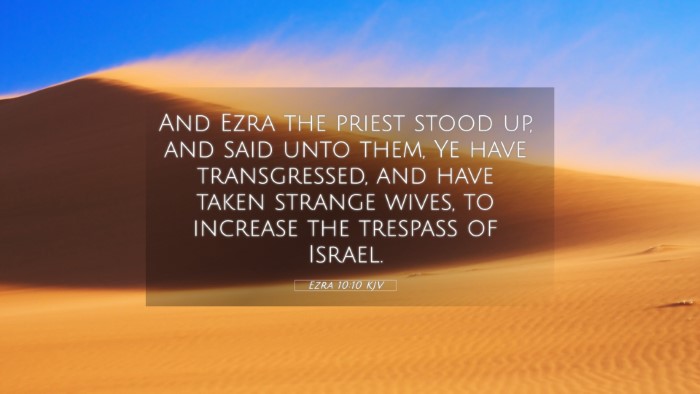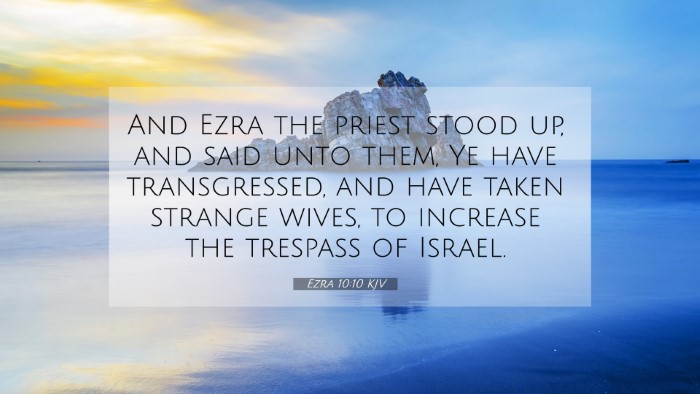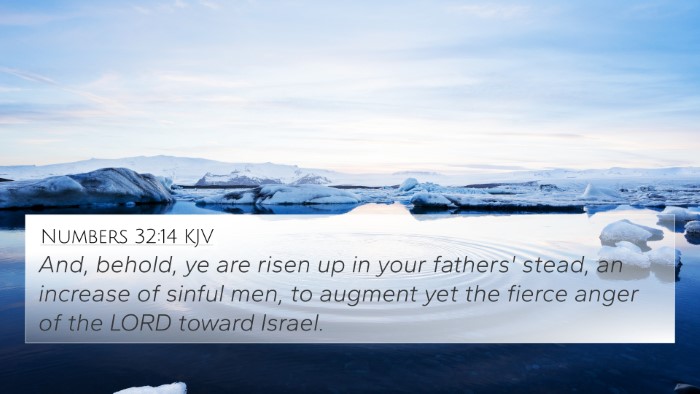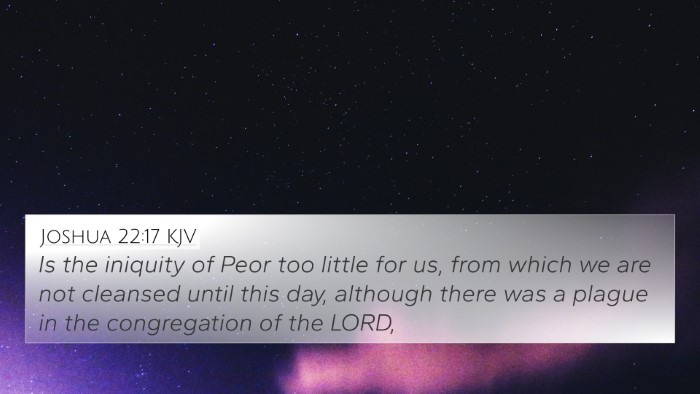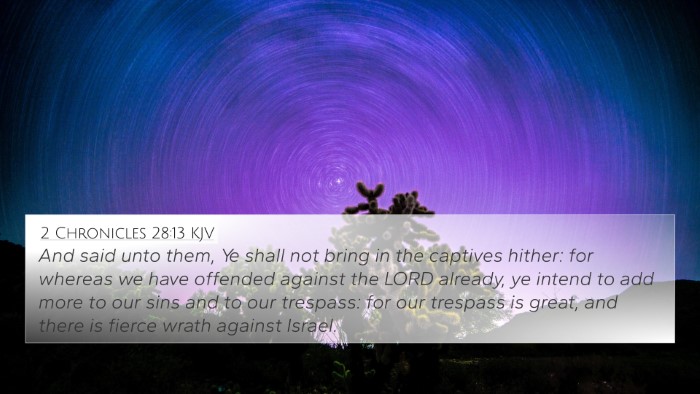Understanding Ezra 10:10
Ezra 10:10 states: "And Ezra the priest stood up, and said unto them, Ye have transgressed, and have taken strange wives, to increase the trespass of Israel." This verse marks a significant moment in the narrative of Ezra, as it addresses the serious issue of intermarriage with foreign nations, which was seen as a violation of God's commandments and a source of spiritual compromise for the Israelites.
Context of the Verse
The Book of Ezra recounts the return of the Jews from Babylonian exile under the leadership of Ezra and Nehemiah. This particular chapter deals with the reformations Ezra sought to implement upon discovering that many Israelites had intermarried with the people of the surrounding nations, contrary to the instructions God had given through His law.
Thematic Examination
In this verse, Ezra's bold declaration serves multiple purposes:
- Accusation of Transgression: Ezra directly addresses the transgression of the people, making it clear that their actions are a violation of God's command.
- Call to Repentance: The acknowledgment of their sin forms a basis for repentance, urging the people to correct their wrongs.
- Restoration of Covenant Faithfulness: Ezra's concern reflects a desire for the Israelites to return to their covenant relationship with God, emphasizing communal holiness.
Key Insights from Commentaries
Various public domain commentaries provide deeper interpretations of this verse:
- Matthew Henry: He emphasizes the seriousness of covenant fidelity and the dangers posed by foreign alliances. Henry views Ezra's role as a reformative leader, whose actions are fueled by a passion for God's honor and the wellbeing of His people.
- Albert Barnes: Barnes highlights the communal aspect of sin and the necessity of corporate repentance. He points out that Ezra's role was not only to correct but also to guide the people back to adherence to God's law.
- Adam Clarke: Clarke delves into the implications of 'strange wives' in terms of both cultural assimilation and spiritual dilution, illustrating how such unions could lead God's people away from their spiritual roots.
Cross-References for Ezra 10:10
This verse can be cross-referenced with several other scriptures that reinforce its themes of covenant fidelity and divine commandments:
- Deuteronomy 7:3-4: “Neither shalt thou make marriages with them; thy daughter thou shalt not give unto his son, nor his daughter shalt thou take unto thy son.” - This verse lays the foundation for the prohibition against intermarriage.
- Nehemiah 13:23-27: Nehemiah confronts similar issues later, illustrating the ongoing struggle with foreign marriages.
- Malachi 2:11: “Judah hath dealt treacherously, and an abomination is committed in Israel and in Jerusalem; for Judah hath profaned the holiness of the Lord which he loved, and hath married the daughter of a strange god.” - This verse shows the spiritual implications of marrying outside the faith.
- 1 Corinthians 6:14: “Be not unequally yoked together with unbelievers: for what fellowship hath righteousness with unrighteousness?” - A New Testament parallel emphasizing the importance of spiritual alignment in relationships.
- Ezra 9:1-2: This prior passage discusses the issue of intermarriage and lays the groundwork for Ezra's subsequent actions.
- Exodus 34:16: God’s commandment against marrying foreign women to prevent turning hearts away from Him.
- Psalm 106:35-36: “But they mingled among the heathen, and learned their works... and served their idols: which were a snare unto them.” - This illustrates the consequences faced by Israel for their unfaithfulness.
Conclusion
Ezra 10:10 reflects not only a specific historical context but serves as a broader warning about the importance of spiritual integrity and obedience to God’s commands. The cross-references provided deepen the understanding of this scripture, illustrating that the themes of holiness, repentance, and fidelity are woven throughout the fabric of the Bible.
Resources for Further Study
- Bible Concordance: An essential tool for locating scriptures related to specific themes or terms.
- Bible Cross-Reference Guide: Such guides can help readers trace thematic similarities across the Scripture.
- Cross-Reference Bible Study: Effective in uncovering hidden connections and insights across the biblical narrative.
- Tools for Bible Cross-Referencing: Resources that can assist in comprehensive scriptural analysis.

